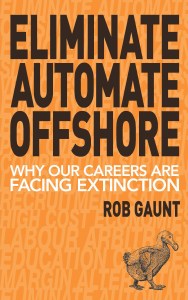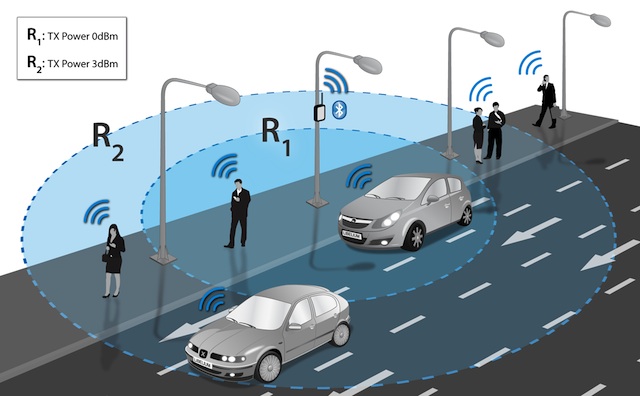The statistics continue to come about the challenging future of work with the Harvard Business Review looking at how artificial intelligence is changing the role of knowledge workers and the World Economic Forum reports how Japan is already well down the track of automating many ‘white collar’ roles.
A couple of decades or so back, the assumption was ‘knowledge work’ represented the future of employment and the thought of management being replaced by computers or robots was unthinkable.
That hasn’t proved to be so as the low end jobs, which we thought would be taken up by displaced industrial workers were offshored, subject to a ‘race to the bottom’ in pay rates and, now, are increasingly becoming automated.
While the robots first came for call centre workers, it’s quite likely the next wave of will affect white colour workers reports Dan Tynan in The Guardian who has an overview of some of the likely fates of various occupations.
A good example of the shift, are lawyers with Tynan citing the company DoNotPay which uses AI to help customers fight traffic infringements as an example of the legal profession being automated out.
Bad for young lawyers
This though isn’t new in the legal profession. Over the past twenty years many roles in fields such as property conveyancing and contract drafting have been offshored, so much so that junior lawyer’s payrates and job prospects have collapsed as entry level jobs have dried up.
How the legal profession has used automation and offshoring is a good indicator of how these tradition industries are evolving, now a senior lawyer can handle more work and the need for juniors and paralegals is reduced. The work stays with the older worker while younger workers need to look elsewhere.
While Tynan discounts the effects of automation on the construction and health industries, those sectors are similarly being changed. Robot bricklayers, for example, allow older workers to stay in the industry longer and increase productivity.
The internet of things and artificial intelligence are similarly taking the load of nurses and doctors while making diagnostics faster and easier with major ramifications of these industries.
Dirty data
There are weaknesses in a data driven world and this gives us clues to where the future jobs may lie, the Harvard Business Review optimistically notes many roles can “composed of work that can be codified into standard steps and of decisions based on cleanly formatted data,” however obtaining ‘cleanly formatted data’ is a challenge for many organisations and managing exceptions, or ‘dirty data’ feeds, shouldn’t be underestimated.
Unexpected consequences exist as well, the media industry being a good example. While the demand for content has exploded, the rise of user generated content on social media and the collapse of advertising models has upended publishing, writing and journalism. While artificial intelligence and animation can replace actors and reporters, it hasn’t done so in a major way yet.
How industry sectors will be affected by automation is something the US Bureau of Labor Statistics looked at in 2010.

The roles which the US BLS estimates may be less affected by automation may be more affected than we think – how the retail and media industries changed in the twentieth century is instructive where the models at the beginning of the century were upended but by the end of the millennium employment in those sectors was higher than ever.
The future of work isn’t obvious and the effects of automation bring a range of unforeseen consequence and opportunities – this is why we can’t rest on our laurels and assume our jobs, trades and professions will be untouched by change.
Similar posts:






